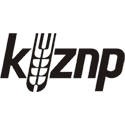The Week in Europe 05-11/01/01
18.01.2001 | Euroskop

EU news in brief
Internal market brings tangible benefits, but needs more reform
Consumers and businesses are reaping the benefits of the growing integration of the internal market, according to a report issued on 9 January. At the same time, economic reforms need to be stepped up, says the Commission's third report on the functioning of product and capital markets. Otherwise the EU risks missing out on the growth potential of new technologies, it warns, and an over-rigid economy could hamper performance. Among the tangible gains of economic reforms are the lower costs of utilities. Telecom prices have also been driven down in many EU countries. However, price cuts are not the only factor; the report recognises that market failures need to be tackled in areas such as food safety and sustainability, to improve the quality of life. Better integration of service industries could make a valuable contribution to the economy, too. For half the companies providing business services, sales to other EU countries make up just 10% or less of their total. If the EU employment rate in services were the same as the USA, Europe would have 36m more jobs. In contrast, EU manufacturing markets are generally well integrated, although technical barriers remain. Finally, the study reviews entrepreneurship, concluding that the business environment needs more improvement. Simpler and co-ordinated regulation, with better access to finance, would help to foster entrepreneurship. The report can be downloaded from
http://europa.eu.int/comm/internal_market/en/update/economicreform/index.htm
[Background text: IP/01/7]
· Sweden's convergence programme (2000-2003) is in line with EU guidelines on growth and stability, according to a Commission report adopted on 10 January. The ECOFIN Council is expected to adopt its formal Opinion on 19 January. [Background text: IP/01/37]
Sweden takes over Presidency
Sweden took over the Presidency of the EU on 1 January, and held the customary meeting with the Commission on 9 January. Swedish Prime Minister Göran Persson stressed the importance of effective cooperation with the Commission during the six-month term of the Presidency. Commission President Romano Prodi said the meeting was a promising start and he had great confidence in Sweden's approach to the EU enlargement process. Employment and the environment are two other areas that the Swedish Presidency has highlighted as key areas in which it will seek to make progress. European Council summit meetings are due to take place on 23-34 March in Stockholm and on 15-16 June in Gothenburg. The Presidency website is at http://www.eu2001.se
· The Euro zone expanded to 12 EU countries on 1 January 2001, as Greece joined the single currency. The formal decision to enable Greece to join the Euro was taken by the European Council in June 2000.
EuropeAid Cooperation Office
The EuropeAid Cooperation Office is taking over the management of 80% of the EU's external aid, 9.6bn euro a year, with effect from 1 January 2001. The change aims to speed up the delivery and improve the quality of programme, as part of reforms decided by the Commission in May. The EuropeAid Cooperation Office will manage most external assistance projects, including TACIS, MEDA and the European Development Fund (covering Africa, the Caribbean and the Pacific). The shift also involves the devolution of responsibilities to the field, through Commission delegations and/or beneficiary states. The office is expected to expand to 1,200 staff by the end of 2001; about half this total will serve abroad. The shift builds on the existing Common Service for External Relations.
Details are at
http://europa.eu.int/comm/scr/news/20001221_en.htm [Background text: IP/00/1535]
· Germany faces a fine of 237,600 euro a day for not complying with a 1998 ECJ ruling over a 1985 Directive on environmental impact assessment.
European Year of Languages
At the start of the European Year of Languages, 43 projects have been chosen for EU grants totalling 1.7m euro. The Year has 'languages open doors' as its slogan, reflecting the themes first, that Europe is multilingual and will remain so, and second, that learning languages brings cultural and economic advantages. Local, regional and national projects that follow these objectives are eligible for EU support; a second round of funding applications closes on 15 February. The Commission is also organising a series of other initiatives, including competitions, a survey, a European Day of Languages (26 September) and other events. The Swedish Presidency is holding a conference on language diversity and multilingualism on 18-20 February in Lund. 2001 was proclaimed as the European Year of Languages by the EU and the Council of Europe; a website is under construction at
[Background text: IP/00/1541]
Green Week competition open
Children and young people aged 7-23 have until the end of the month to enter a competition with the environment as its theme. Run as part of the Commission's Green Week initiative, the contest has five categories: painting, story-writing, 'If I were the Environment Commissioner… photography and video. The winners will have their entries exhibited in Brussels during Green Week (24-28 April) and will be invited to receive their prizes from Commissioner Margot Wallström.
Further details are available by calling 010 32 2 296 98 63 or 299 22 36 and on the website at
http://europa.eu.int/comm/environment/greenweek/competition_en.htm [Background text: IP/01/3]
Voice telephony over Internet
Voice services over the Internet should continue, in general, to be regulated differently from traditional voice telephony. So concludes a Commission review published on 5 January, reviewing a Notice from 1998. Voice services over the Internet usually do not meet the conditions of voice telephony in the 1990 services Directive, and so should not be treated as such for the purposes of regulation. If any Internet providers do qualify as providers of voice telephony, they would be subject to the same regulatory regime once they offer an equivalent quality of service. The latest Notice, drawn up after public consultation last summer, clarifies a number of issues, and is intended as guidance on the status of voice services over the Internet under EU law until new Directives on electronic communication come into force. The new Notice appeared in the Official Journal C369 (22 December 2000). Responses to the consultation are at:
http://europa.eu.int/comm/competition/liberalization/telecom/voice_over_internet/consultation/ [Background text: IP/01/4]
Prodi urges Moroccan fish deal
Commission President Romano Prodi has urged Morocco to confirm its commitment to conclude a fisheries agreement with the EU. His comments to the Moroccan ambassador to the EU, Aicha Belarbi, followed the visit of Commissioner Franz Fischler to Rabat on 8-9 January. Fischler said technical experts had made progress but the Moroccan government had then backtracked on several points. The latest offer from Morocco was substantially worse than the one on the table the previous day, he said. The EU wants an agreement, and will pay a fair price - but the financial compensation must be proportional to the fishing opportunities for the EU fleet, Fischler said. The previous fisheries agreement with Morocco expired on 30 November 2000. [Background texts: IP/01/39 & SPEECH/01/4]
· Prodi is visiting Morocco, Algeria and Tunisia on 12-15 January as part of the Commissions follow-up to the EU-Mediterranean ministerial conference held in Marseilles last October. [Background text: IP/01/6]
Structural Funds reviewed
The Structural Funds had committed 99% of total assistance for 1994-99 by the end of 1999, reports the latest annual review. Overall, 75% of the total had been paid by this date; rules allow payments at local level to continue until 31 December 2001. The report highlights achievements in job creation and in equal opportunities for women and men, which were two priority areas for the Structural Funds in 1999. That year saw the consolidation of the European Employment Strategy, launched in 1997, and the revision of guidelines on employment. The principle of equal opportunities was enshrined in the Structural Funds Regulation adopted in 1999. The report is available from http://inforegio.cec.eu.int [Background text: IP/00/1543]
JCB has been fined 39.6m euro for illegal restrictions on sales of its machines. This limited competition and prevented the purchase of machines more cheaply in another Member State. [Background text: IP/00/1526]
Industrial producer prices rose by 0.3% in the EU and 0.2% in the euro zone in November.
[Background text: ES 3/2001]
State aid for environment schemes are covered by guidelines adopted on 21 December. Employment aid is also being reviewed. [Background texts: IP/00/1519, IP/00/1520 & MEMO/00/125]
A film channel joint venture by NTL and Universal, the Studio Channel, has been approved.[Background text: IP/00/1505]
Informační centrum Evropské unie při Delegaci Evropské komise v České republice
European Union Information Centre of the Delegation of the European Commission to the Czech Republic
Rytířská 31, 110 00 Praha 1, Česká republika
Tel.: (+420 2) 216 10 142 Fax: (+420 2) 216 10 144
Další články v kategorii
- Ve velkochovu slepic na Havlíčkobrodsku veterináři potvrdili ptačí chřipku (21.12.2025)
- Provozovateli jatek v Holešově meziročně vzrostl čistý zisk a také tržby (20.12.2025)
- Státní veterinární správa začala ode dneška kontrolovat prodeje živých kaprů (19.12.2025)
- Španělské úřady prověřují, zda africký mor prasat neunikl z tamní laboratoře (19.12.2025)
- Ve Stálkách na Znojemsku postaví zemědělci šest nových hal pro chov brojlerů (19.12.2025)
- Dohoda EU s Mercosurem o obchodu se odkládá na leden, uvedla von der Leyenová (19.12.2025)

 Tweet
Tweet





